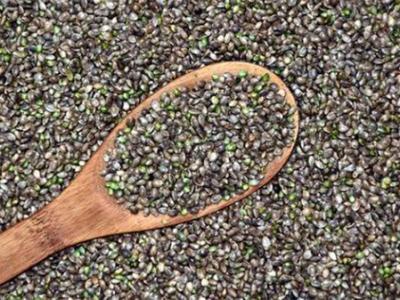
Scotland has ambitious targets to combat climate change, setting a target of net-zero Greenhouse Gas (GHG) emissions by 2045 and to reduce emissions by 75% by 2030. One step towards mitigating GHG emissions is the diversification of agriculture.
One of the research questions the Rowett Institute has been answering is, which healthy environmentally sustainable food crops have the potential to be grown in Scotland? Hemp has been identified as one crop that could meet these criteria. Hemp is very nutritious as it is a rich source of protein, dietary fibre, healthy fats & minerals, and the production of hemp is carbon negative. This is because it absorbs more carbon from the atmosphere during growth than is emitted by the equipment used for harvest, process and transport the crop.
Along with hemp, other potential sustainable nutritious crops identified are pea, broad bean and buckwheat. Research has shown that these crops can from part of a healthy sustainable diet, and a recipe book has been created to highlight the nutritious and adaptability of these crops.
Hemp could play a role in the development and expansion of a low carbon, environmentally responsible industry. It would introduce a new crop to Scottish agriculture, could contribute to greater biodiversity and create new job opportunities across the supply chain.
Would you like to read more? Our full blog was originally post here
This research was conducted by Dr Madalina Neacsu and Professor Wendy Russell .
Research funded by the Scottish Government as part of the Strategic Research Programme.
